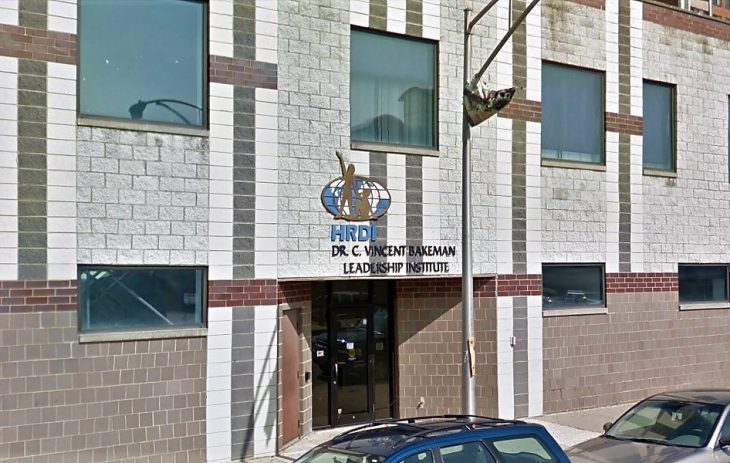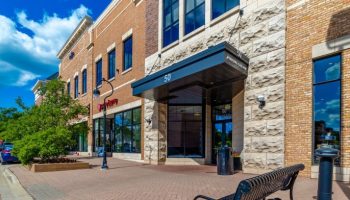About HRDI Medication Assisted Treatment
Renowned for its deep dish pizza, Chicago, Illinois also features HRDI Medication Assisted Treatment. Since 1974 this Community Behavioral Health Center has provided prevention, intervention, and treatment for underserved communities in Chicago’s South Side. You can access substance abuse, mental health and other health care to start or continue your recovery journey.
You can pay for treatment with most private and public insurance. Even if you don’t have insurance you can still get the care you need. They may provide sliding scale fees based on income and family size.
Opioid Treatment Track
One great element I noticed was their opioid treatment program. They provide tailored medication assisted treatment (MAT) to help you manage the physical aspects of quitting opioids. That way you can immerse yourself in recovery without the distractions of cravings and withdrawal symptoms.
Holistic Healing
Another thing that caught my eye was their whole person approach to addiction treatment. Their health center was created to remove treatment barriers and improve access to all health care. You’ll benefit from integrated primary and behavioral health care to improve your overall wellness.
Targeted Residential Programs
I also think it’s nice that you can access connections to residential care within their other locations. With residential care you’ll receive 24/7 support to reach your recovery goals. Along with standard programs, they offer a specialized gender specific track for pregnant women and mothers. They even allow children up to age four to live on campus.
Gambling Services
This facility also offers gambling addiction treatment services. While often overlooked, gambling can be just as harmful as substances to your quality of life. You can access tailored care to change your behaviors and gain coping skills for sustained recovery.
Levels of Care
-
Outpatient
In outpatient therapy, you’ll attend therapy sessions several times each week while living at home. This is ideal if you have a strong support system and a lower risk of relapse. Outpatient treatment offers flexibility to maintain work, school or family obligations.
-
Dual Diagnosis
Dual diagnosis programs address substance use disorders and co-occurring mental health conditions simultaneously. This integrated approach to care improves the likelihood of long term recovery and stability by addressing the root causes of addiction.
Detox Service Setting
-
Outpatient Detox
Outpatient detox gives you access to medically supervised withdrawal services while still allowing you to live at home. You’ll attend a clinic for treatment and monitoring. This flexible option is suitable for those with mild to moderate withdrawal symptoms who have strong support systems.
Programs
-
Adult (18+)
Adult programs address the substance use and life challenges specific to adults. Therapists can deliver sessions in individual, group and family settings. Services often include job support and life skills training in a structured environment.
-
Alcohol Detox
Alcohol detox programs offer medical support to help individuals withdraw safely from alcohol. Your care team may use medications to ease your symptoms and provide medical monitoring to address complications.
-
Drug Detox
Drug detox programs support individuals who are withdrawing from addictive substances like cocaine and heroin. Medical support helps you manage symptoms in a controlled and safe environment so you can achieve initial sobriety.
-
Men
Men's programs address substance use while also considering the social pressures, family roles and mental health concerns that are specific to men. You’ll learn healthy coping mechanisms as you build emotional resilience and develop communication skills.
-
Opioid Detox
Opioid detox uses medications to ease severe withdrawal symptoms. It also includes medical supervision to help you manage potential complications. These services allow you to stabilize and begin a recovery plan.
-
Women
Women's programs offer a safe and supportive space to focus on gender specific issues such as trauma, family roles and mental health conditions. Therapists tailor the sessions to address women's needs and foster empowerment in a healing and nurturing environment.
-
Young Adult (18 - 25)
Young adult programs are designed for individuals who are transitioning into adulthood. Topics of discussion typically include identity, independence and peer relationships. Providers may also offer life skills training and career support.
Payment Options
- Payment Assistance
- Medicaid
- Medicare
- Private Insurance
- Self Pay
Accreditations
-
 SAMHSA
SAMHSA
Contact
340 East 51st Street
Chicago, IL 60615





